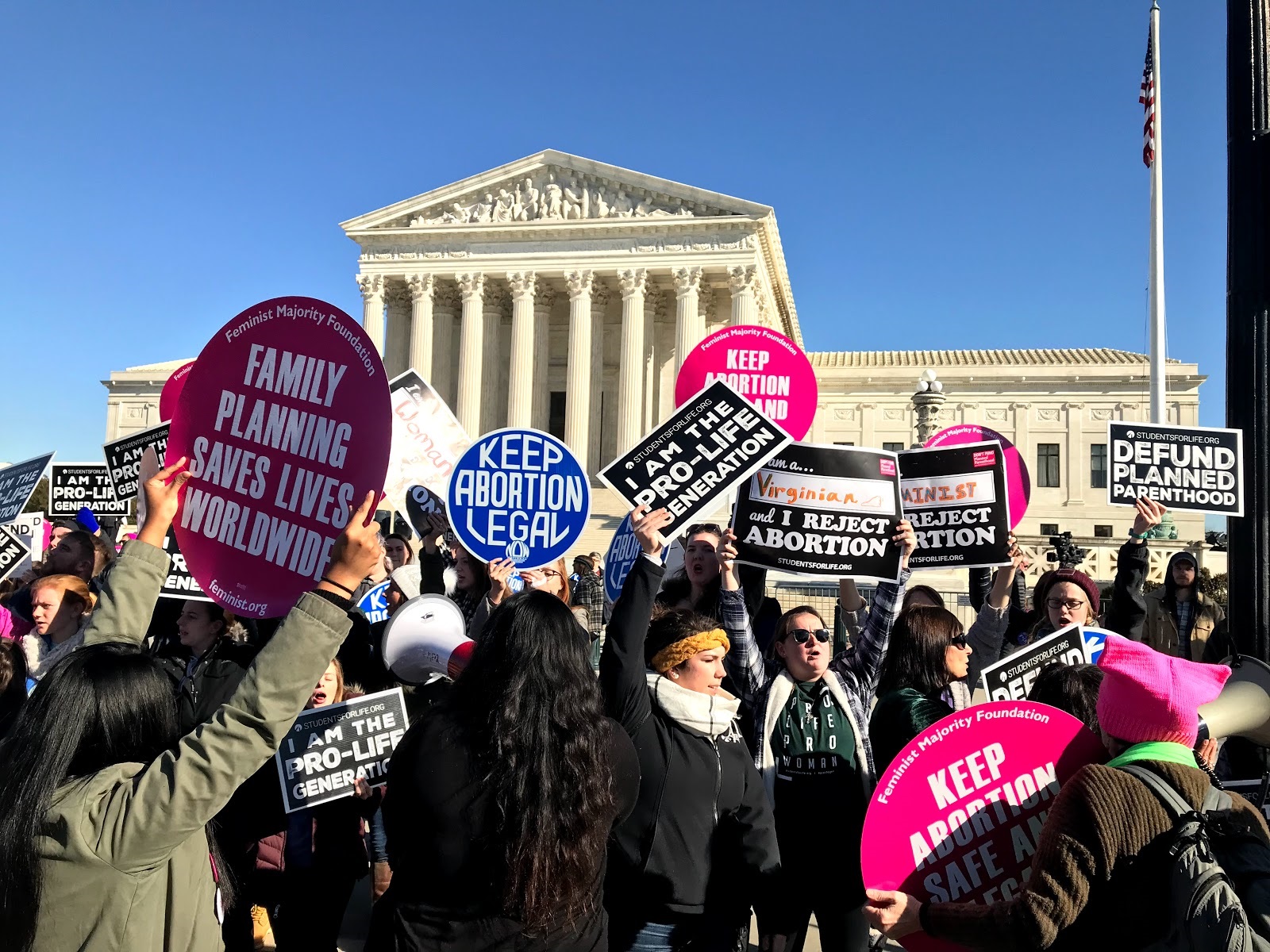A little over two weeks ago, on January 19, 2018, thousands of anti-abortion protesters turned up in Washington, D.C. to attend the 45th annual March for Life. Feminist Campus showed up too – wielding “Keep Abortion Safe and Legal” signs, ready to counter-protest. For many of us, this was our first time at the March for Life, and the first time that we had experienced so many vocal opponents of abortion at once. Two of our Feminist Campus interns who attended the March for Life counter-protest for the first time share their experiences of the day’s events:
Aina Ramiaramanana
As a woman of color who is also an international student from Africa, I am not new to aggression. In my time in the U.S., I have faced micro- and macroaggressions, and I am used to being surrounded by people who are not like me. I typically participate in rallies because it is so empowering to meet others who share similar values and who are willing to fight for the same things that I am willing to fight for.

This year’s March for Life was the first time I participated in a counter-presence, and I did not know what to expect. In preparation for the counter-presence, I reminded myself of the times when I resisted all of the many instances of oppression I face on a daily basis, and told myself it would be the same, except on a larger scale. Nevertheless, I was nervous and scared that I would not have enough power to resist that big of a crowd.
Although there were moments during the counter- presence that I felt small, judged, and neglected, I saw the tremendous impact and need for our presence. From the comments anti-abortion advocates made about me personally, to the signs that I saw during the counter-presence, I noticed that there was so much ignorance among the marchers and that most of them did not even take a second to realize the cultural, historical, and social impacts of their March.
I quickly realized that I was standing for the millions of women who have risked and lost their lives because they lived in a time before Roe v. Wade: I stood there for women who were stripped of their right to make a choice regarding their own bodies. I felt empowered resisting and fighting against all of the attacks that aim to push women back to a time before Roe. I felt the need to stand against all of the men who walked with signs about “lost fatherhood” due to abortion because my sign served as a reminder that what a woman does with her body has nothing to do with them. For all of my life, I have had the privilege of having very few restrictions when it comes to my body. I have had a choice. And for as long as I live, I will continue to stand, shout, and march with my sisters to make sure that women and girls all around the world can have the power to make choices about their own bodies.
I realized the day of the March for Life that there is power in solidarity – whether you are standing in solidarity with 30 people or 30,000 people.
Skyler Ford

While protesting, I had the displeasure of being asked by cisgender men barely over the age of 20 (who I assumed had never birthed a child before or experienced an abortion): “How can African Americans support something like this? What about Planned Parenthood?” In 2015, when Ben Carson accused Planned Parenthood of trying to control the Black population, I was appalled. In that accusation, he discredited Black women’s ability to make the best choices for our bodies. I cannot speak for all Black women, but I know that my mom, aunts, sisters, and possibly every other Black woman that I have ever come in contact with are intelligent and strong-minded enough to make their own reasonable decisions about their reproductive health – their bodies.


True statements and very well written.